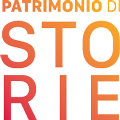Project Description
NURTURING THE COMMUNITY
FOOD AS A VEHICLE OF CARE AND HUMAN RELATIONS
Associazione Aiuto per l’Autonomia odv, Bergamo, 2024
The role of storytellers, of storytelling itself, is to keep breathing new life into things, as if they were always in a nascent state
Marco Baliani
Breathing new life into things: this is possibly the most profound legacy of our work with the twelve storytellers of “Nurturing the community”. Individuals who, through the transformative act of telling stories, explored the countless narratives revolving around food: food as a human right, but also as an experience of conviviality and social cohesion; food as a “creative gift”, and as a vehicle of connection/communion with the Earth.
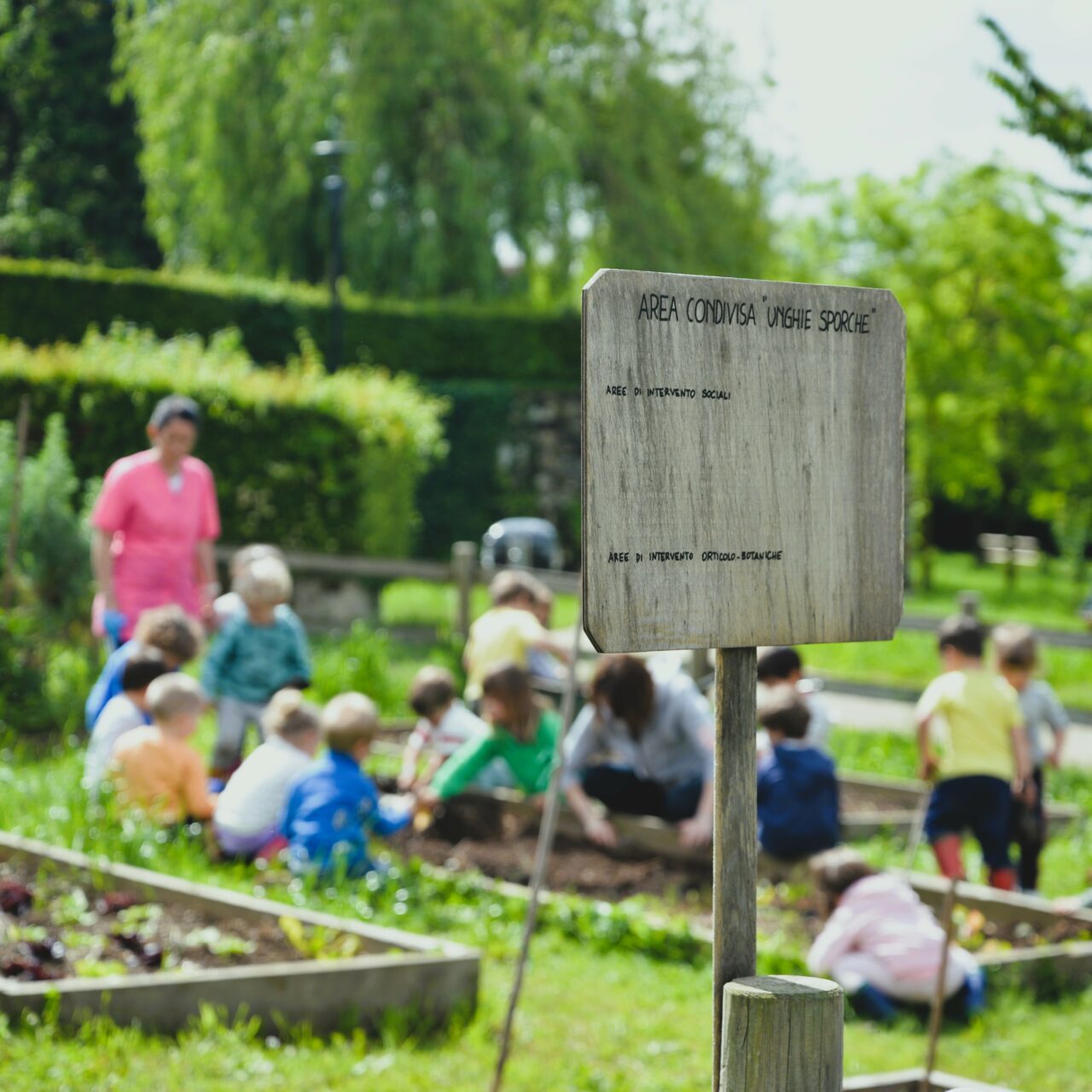
Photo by Caterina Marra
Through the involvement of other organisations operating in Bergamo’s territory (Associazione ProPolis, Quintino community Vegetable Gardens, Monterosso Urban Orchard, CTE – Centre for all Ages of Monterosso, GAS-Solidarity Purchase Group of Monterosso Valtesse, Camozzi K-14 school, Benvenuti nursery school), the original idea of the Aiuto per l’Autonomia association – promoting its own activities in support of vulnerable people – turned into a multivocal narrative about the importance of food: not only as a basic need, but also as a powerful vehicle of social justice and community-building.
The twelve storytellers (citizens, volunteers, educators) guide us through places and experiences where the magic of food production, harvesting, processing and sharing is renewed every day: from the kitchen at the Centre for All Ages to the street dinner in via Giulio Cesare, from “Ol Disnà” meal delivery to the “kind land plots” of the Quintino Vegetable Gardens.
Creating these narrative trails through the neighbourhoods of Valtesse, Monterosso, Conca Fiorita and Valverde was an opportunity for them not only to expand their ability to look and to listen, but also to take care of others, to pay them attention, to foreground the dignity of voices and stories, to create and strengthen the connections between individuals through the extraordinary intangible heritage they embody. Thereby actively taking part in an intergenerational passing of the torch, but also reinforcing the precious networks whose richness and strength is vital for community wellbeing.
The twelve stories are published in Nutrire la comunità, edited by Simona Bodo and Maria Grazia Panigada (Monti Edizioni, 2024).
Extracts
Amina’s veiled head has just disappeared past the curve leading to the Parco del Quintino. I would recognise that hurried pace anywhere; one hand holding her small child, the other a big parcel which I already imagine filled with fragrance.
I try and reach her, curious as I am to discover what treats she managed to prepare for this end-of-school-year party, but I am distracted by the cheerful greetings of a crowd of mothers asking for my help to carry trays, baking pans and huge bags overflowing with every God’s gift.
“Mm, this smells delicious!”, “Watch out, it may still be hot, I just removed it from the oven”, “Be careful, it’s heavy!”: curiosity grows, as no one reveals what “her gift” will be.
There is time, though. The afternoon is long, and the party is yet to start.
Sometimes it’s just a matter of seconds.
That moment suspended in time, between before and after, between the road made and what is about to happen.
It’s like a snapshot, that moment, and all of a sudden you see all those yellow pub tables, each one with its two benches, neatly lined up on a quiet suburban street.
In a short while the road will be filled with people: children, parents, grandparents, boys and girls, old and young. Everyone carefully set their own table, as you would for a great feast, but also mindful not to leave waste around: no plastic, but cotton tablecloths with check and floral patterns, china plates and glass tumblers, wine bottles and teapots overflowing with steaming hot mint tea. Colours, smells, chatter, lots of chatter… this is the “100 Piatti”, a street dinner organised by the ProPolis association to mark the beginning of the summer.
Every time I get to the Quintino vegetable gardens, the distinct feeling is to belong in this space. It’s like my feet sank into the ground like the roots of a tree and my head got closer to the sky, like its leafy branches. It’s a form of balance, connection and tranquility. I have always had this twofold need: staying with my feet on the ground, and at the same time feeling the air, seeing the light above me and being free to think, act, create.
This sense of peace gets stronger when I dig my hands in the dirt, kind of like plugging in the socket of well-being.
Re-emerging from these memories, I realise how important food was in the daily life of the small community gathered around this courtyard: the cobs hanging from the roof, the frugal meal we shared on the summer day the wheat was threshed, the milk I went to collect from the barn downstairs, with which my mother would churn her own butter…
A thin and yet resilient thread connects those long-gone days to my volunteer work for “Ol Disnà”, where food is not only a right of the most vulnerable, but a catalyst for social cohesion and human connection.
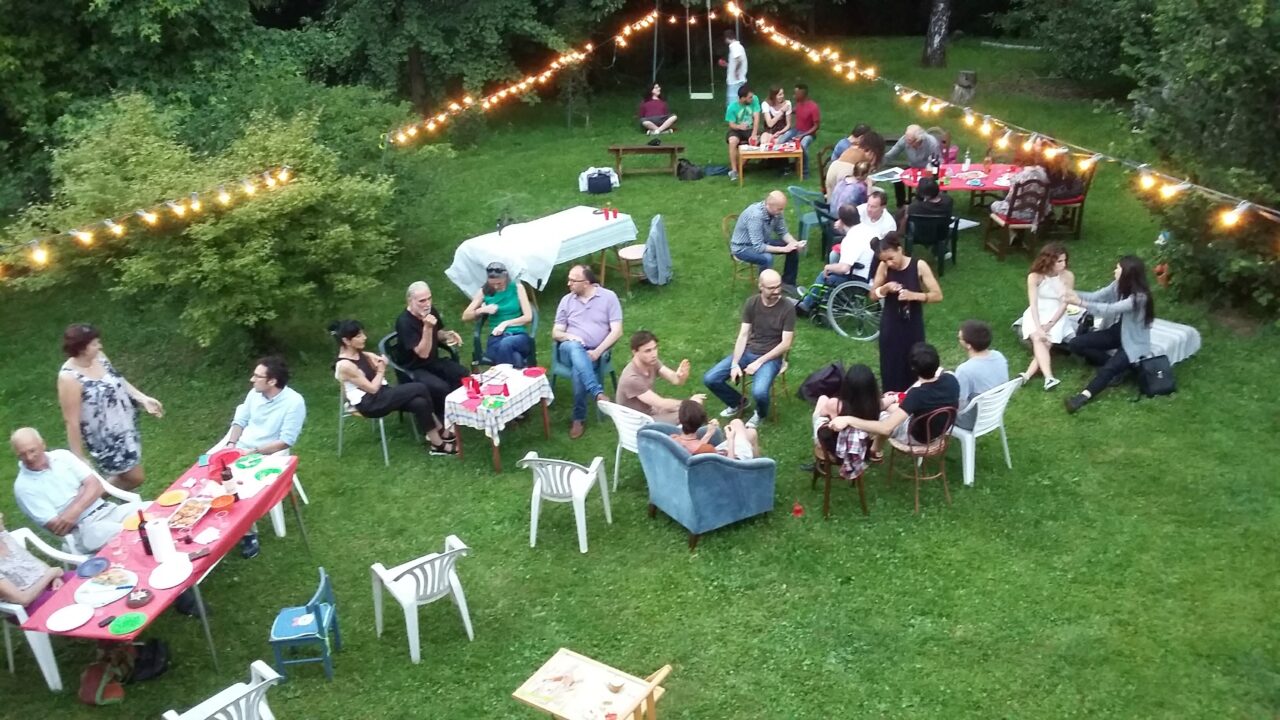
Photo by Claudio Gamba
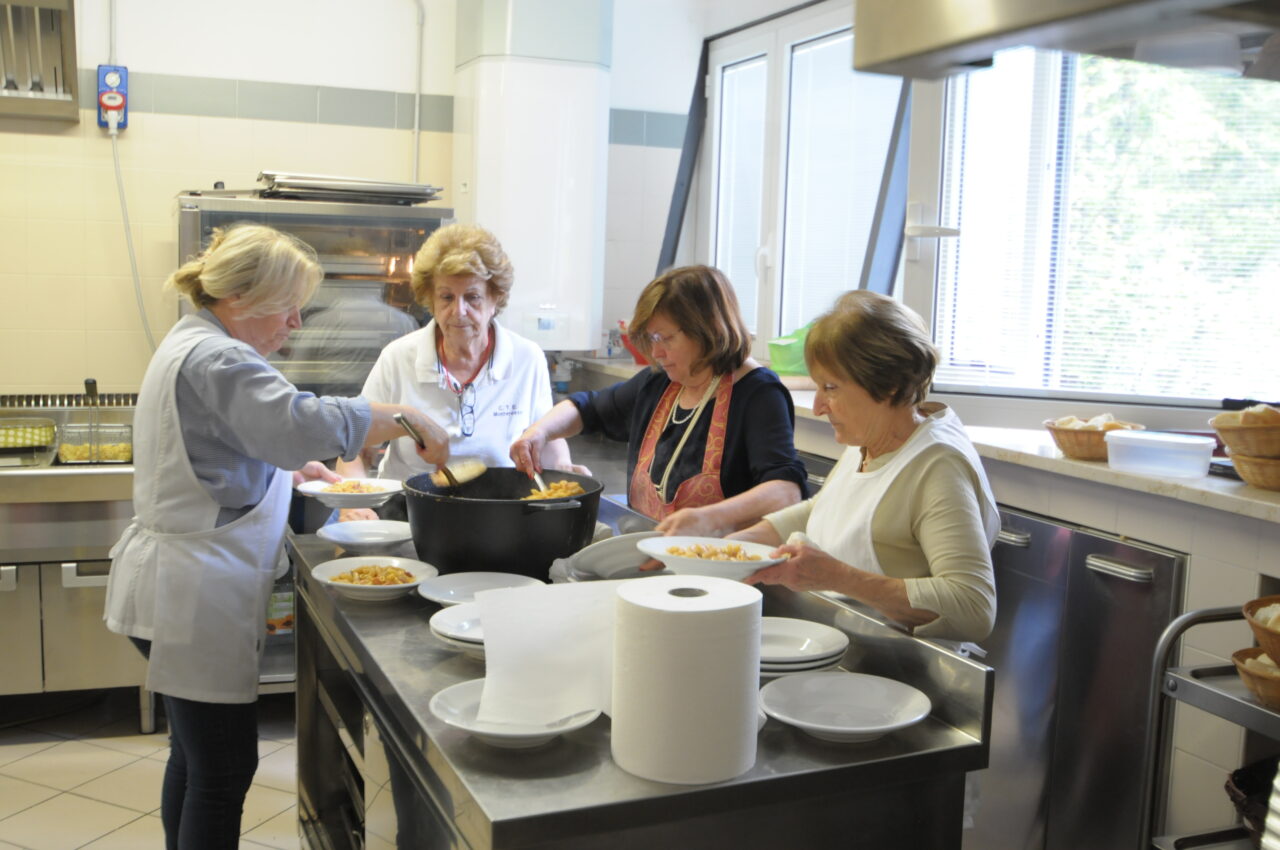
Photo by Ivan Cortinovis
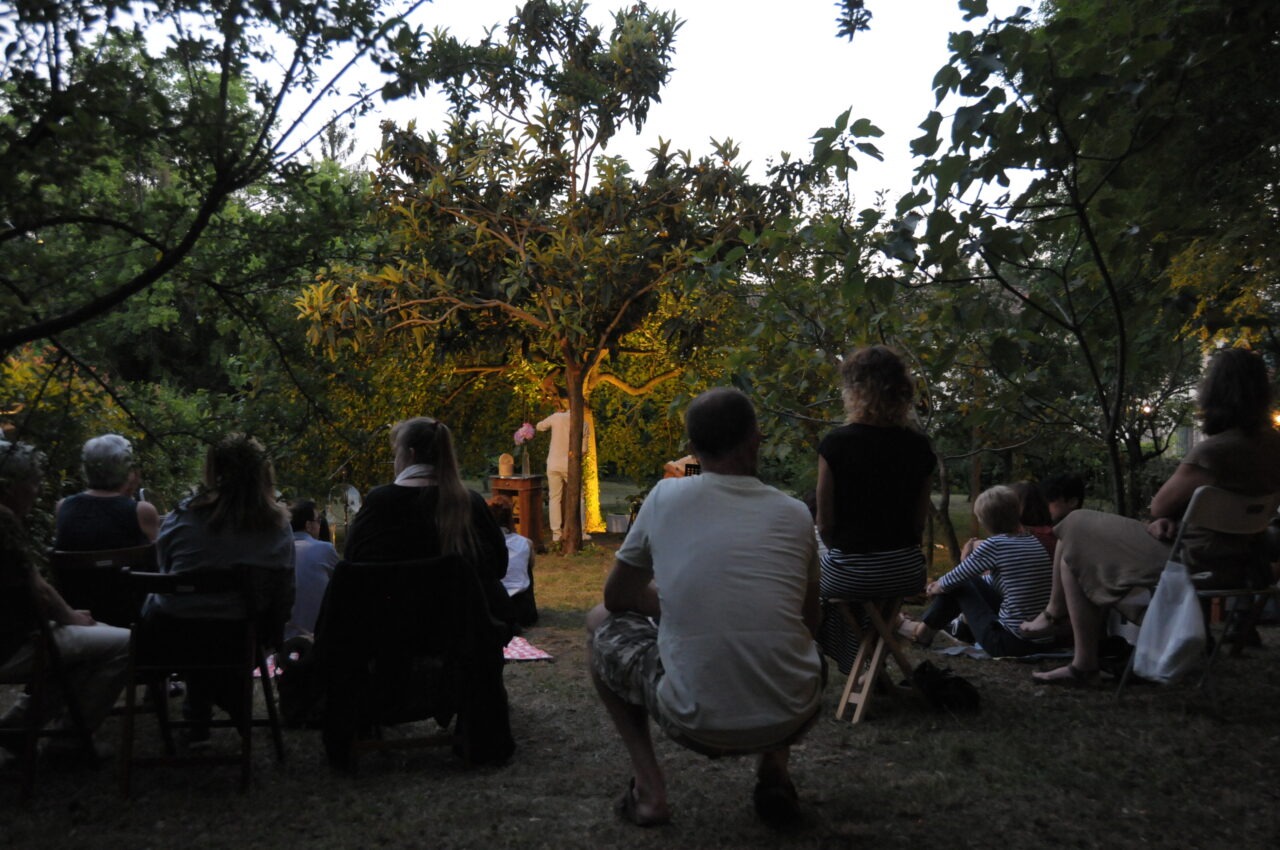
Photo by Ivan Cortinovis
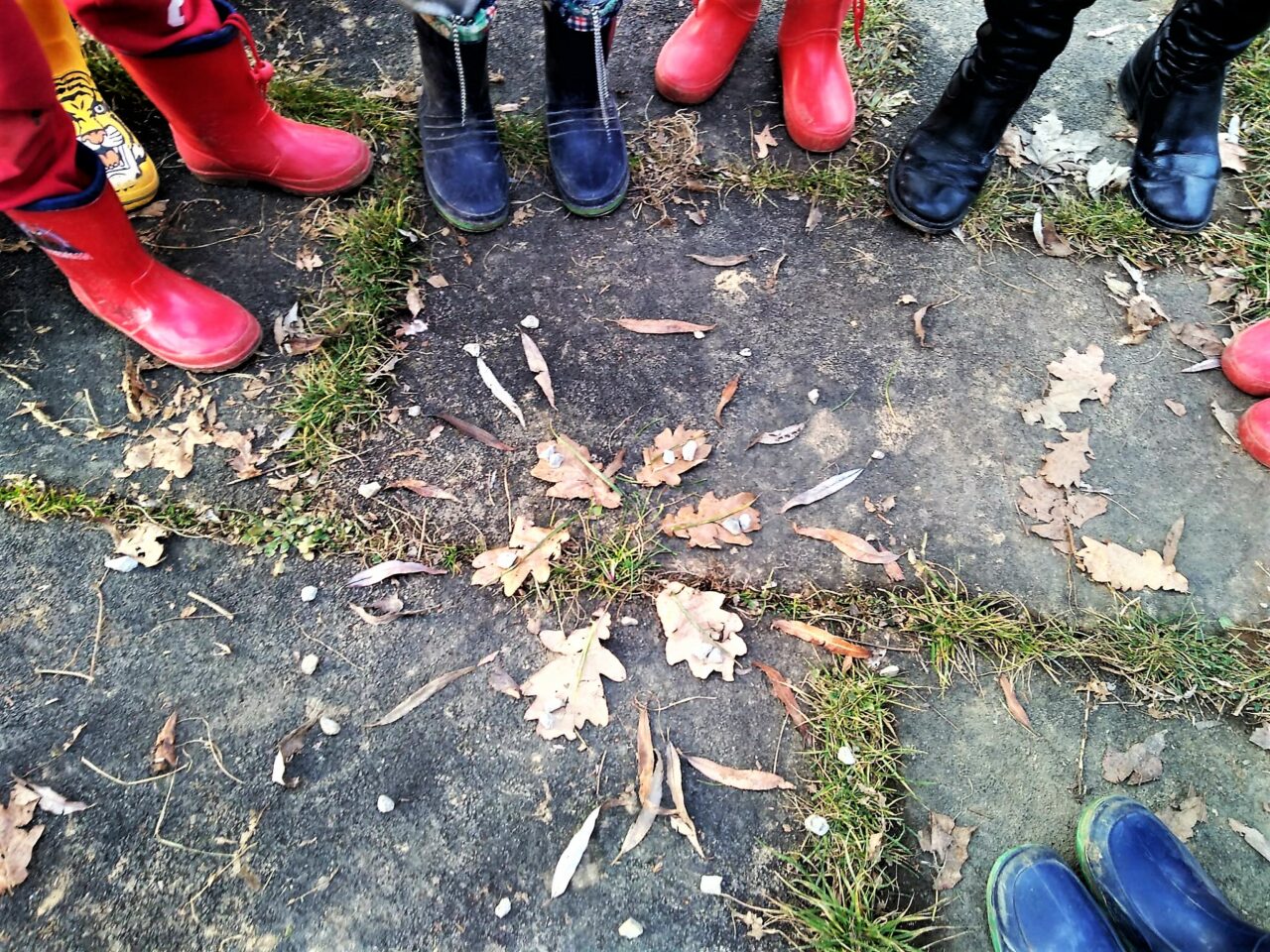
Photo by LaCincia23
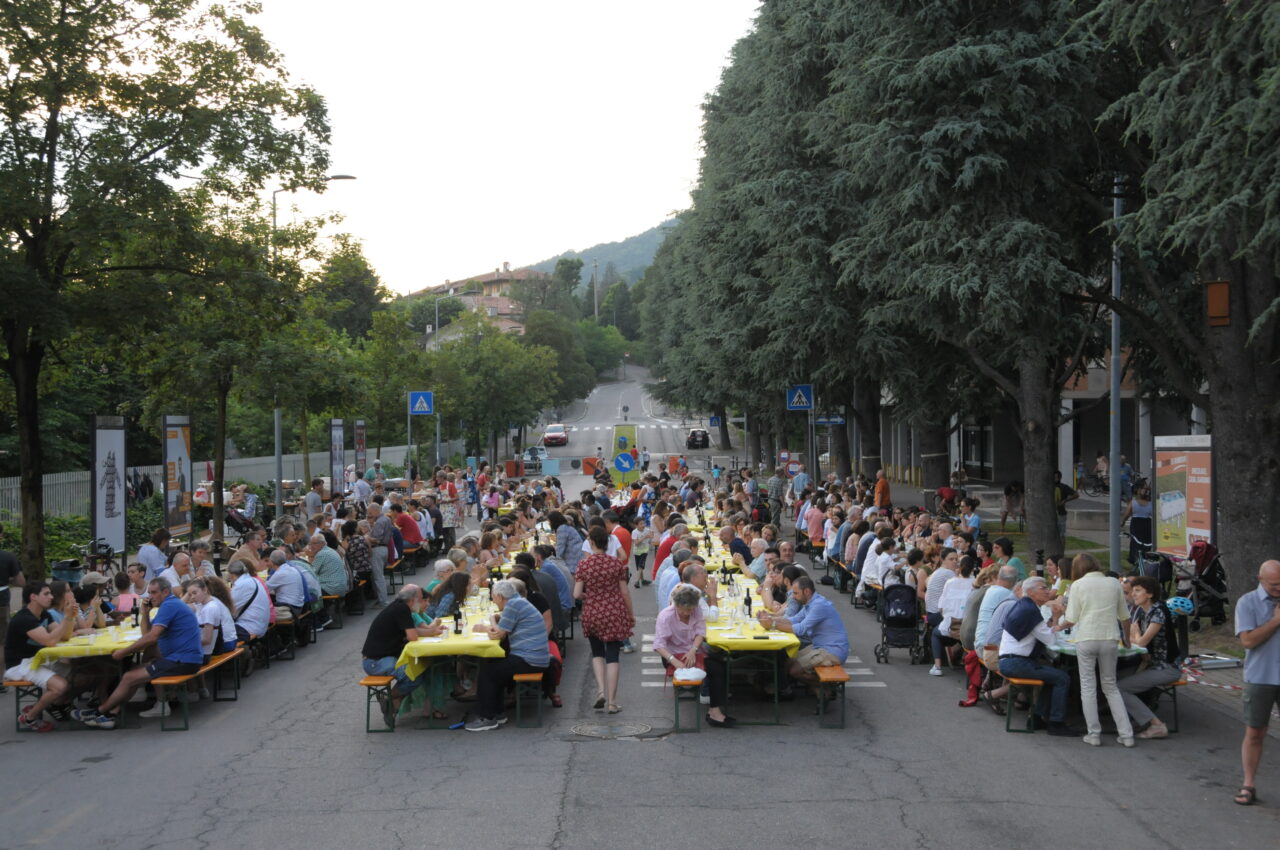
Photo by Claudio Gamba
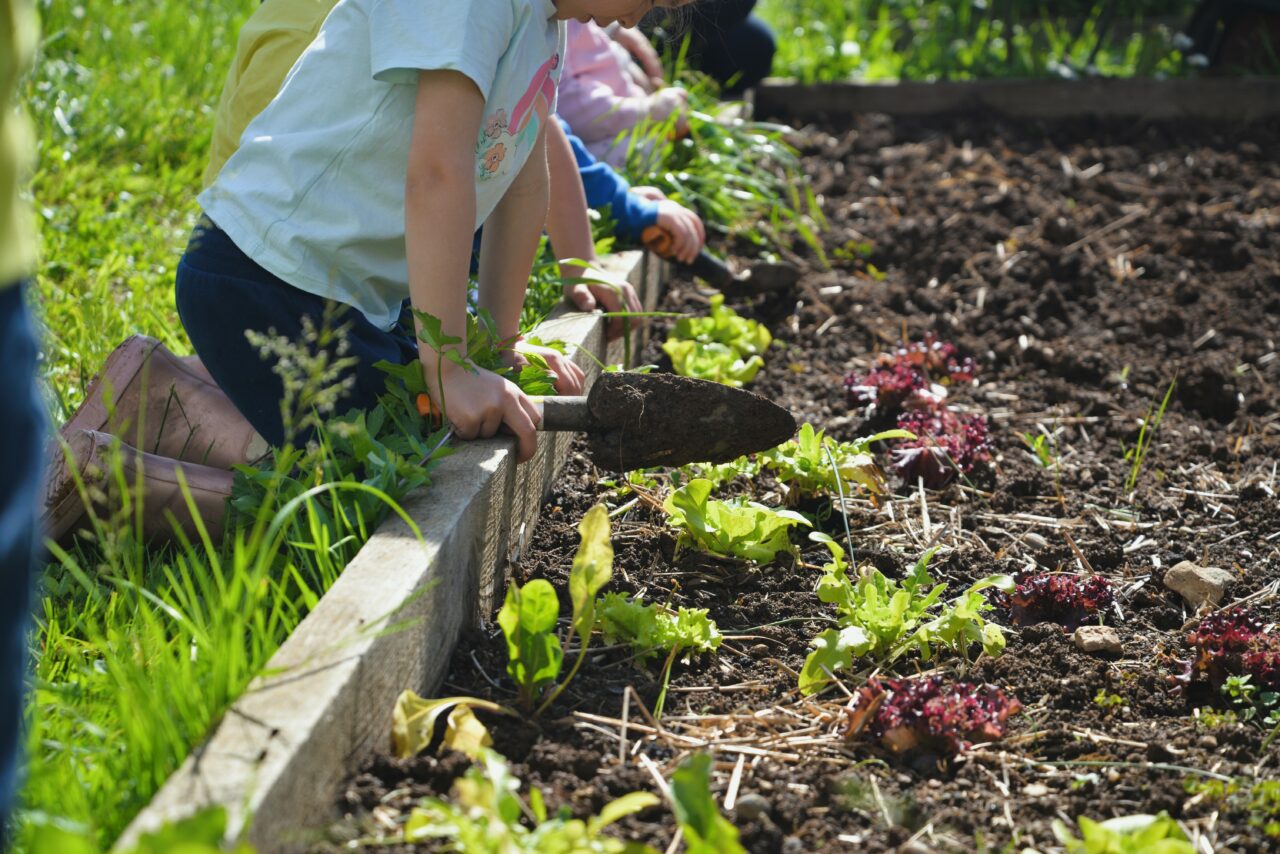
Photo by Caterina Marra
PROJECT PARTNERS
![]()

![]()
